HVAC Allergies: How To Get Rid Of Pollen From Your Home This Spring
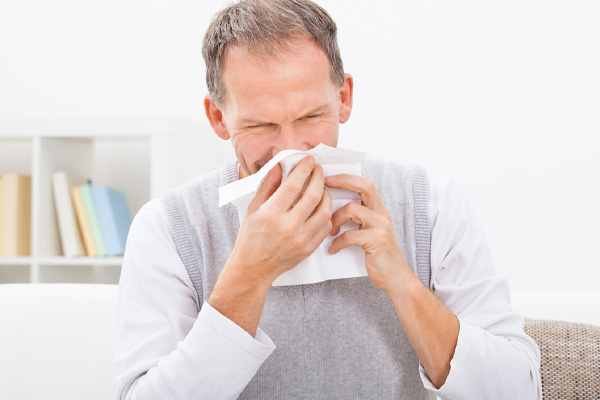
Allergies affect millions of Americans each year. Some have it worse than others due to their sensitivity and their environmental conditions. If you are one of these individuals, then consider making changes to your home for greater comfort. You don’t have to suffer any longer. It’s possible to tackle the problem head-on by changing habits and relying on technology. By being proactive, you will be able to go through allergy season with minimal issues. However, the opposite is quite true where. If you are not proactive, you can experience HVAC allergies at a heightened level. Therefore, to help combat seasonal allergies and to prevent your HVAC system from working against you, keep reading below.
How To Help Reduce Your Seasonal Allergies This Year
Contents
In this article, we focus on how you can turn your HVAC system into a health ally.
Replace Your HVAC Filters
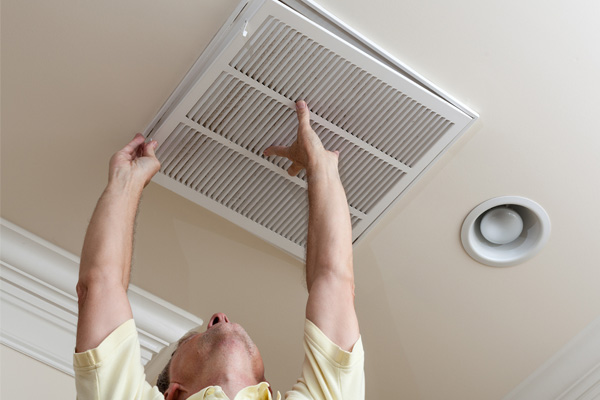
The air around us is filled with impurities that can trigger allergies and respiratory issues. They are hard to see with the naked eye but sometimes you can see light reflecting off of them from the windows. Heating and cooling systems already have filters that trap dust and dirt from the air that passes through them. These can minimize allergens while protecting the equipment. Manufacturers recommend frequent HVAC filter replacement to prevent complete air blockage that could reduce system efficiency and shorten service life. Make it a point to replace your air filters every one to three months, depending on the rate of dirt build-up.
Upgrade To HEPA HVAC Filters
Most HVAC equipment comes with basic air filters that can only capture relatively large particles. They are unable to screen pollen and other small allergens because of their wide mesh. That’s because manufacturers are mainly focused on protecting the equipment from airborne matter that could damage the system and not those that could trigger health issues among users.
If you would like the latter, then you need HEPA filters. These are high-efficiency particulate air filters with tighter mesh that can trap allergens so they will no longer harm you. However, they will also reduce the flow of air so the HVAC system will need additional modifications to run well. Talk to an HVAC contractor to find the best options for your system.
Keep Surfaces Clean
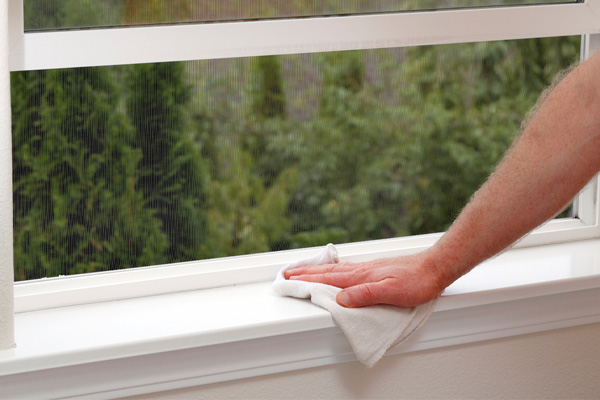
Allergens that manage to get inside the home won’t float in the air forever. They will eventually rest on the surfaces such as your floor, your desk, your bed, and so on. Make it a habit to clean these surfaces particularly in your room. Don’t use a feather duster or a broom as these will only kick the particles back into the air. Instead, use a powerful vacuum cleaner to suck up all of the dust, dirt, and pollen. If you don’t have one, then get a clean rag and dip it in water. Squeeze excess moisture and use it to wipe the surfaces so that dirt will stick right away. Wash the beddings every week or as often as you can.
Run The HVAC System Regularly
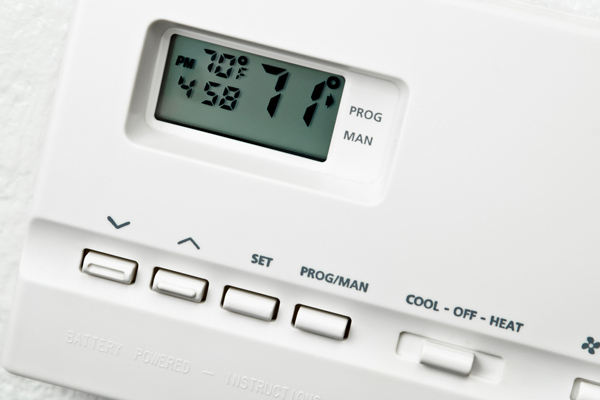
We all know that stagnant water can become dangerous. Insects can use it to breed and bacteria can grow faster. Stagnant air can be hazardous as well. If the air inside the home doesn’t move, then pollutants can’t escape. They will just pile up inside until they reach unhealthy levels.
One way to improve ventilation is to turn the AC on every so often even if you don’t feel like you need it. This will make the air move as the system will pump fresh air from the outside and dump stale indoor air in the other direction. Do this for a minimum of 20 minutes each day.
Install A UV Light For Sanitation
Ultraviolet light is known as a disinfectant. When we dry clothes out in the sun, it’s not just to make the water evaporate faster with the heat. It’s also to kill the bacteria with UV light and make the clothes smell fresher. UV light has the ability to destroy pathogens on a molecular level so they are also used in concentrated form for water treatment. Smaller UV devices may also be installed in HVAC systems to destroy allergens growing inside of it. This will prevent the air conditioner from spreading contaminated air around the house. As a result, indoor air quality will greatly improve.
Seal Gaps On The Walls & Windows
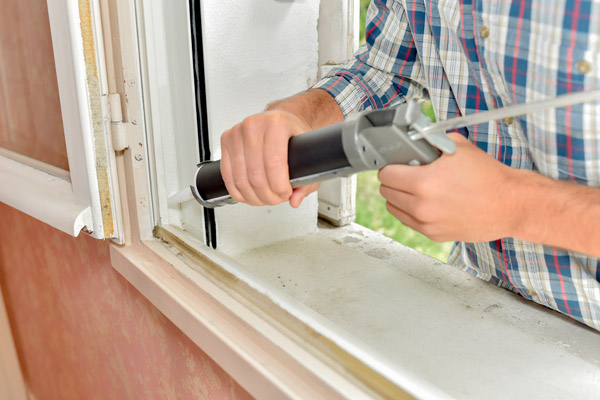
Closing all of the doors and windows may not be enough to prevent pollen from getting inside. Some homes have cracks or gaps along the sides of the doors and windows. Check your house to see if you have these narrow spaces that allow unfiltered air to flow through. If you find any, then consider using caulk, weather stripping, or spray foam to block the flow. You should also make sure that the windows are all closed during the peak pollen hours in the early mornings.
Use A Whole House Humidifier
Measure your indoor humidity to get a better picture of your specific environmental conditions. Ideally, this should remain around the 40% mark. If it gets too dry, then allergens can stay in the air longer and have more opportunities to trigger physical reactions among sensitive individuals. If it gets too humid, then there mold and mildew can become a bigger problem. So use a whole-house humidifier or dehumidifier depending on what’s needed to restore balance.
Get Annual HVAC Cleaning & Maintenance
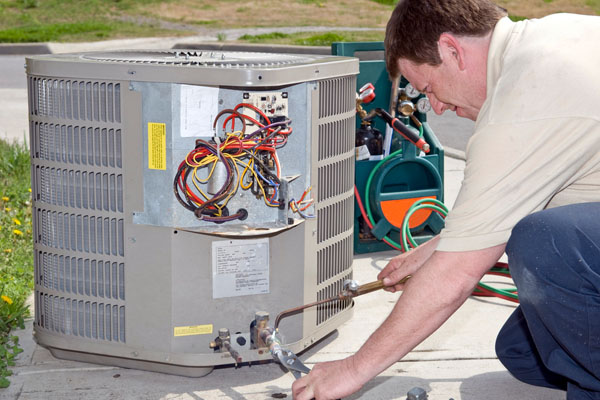
Allergies are too big of a problem to tackle on your own. Consult a doctor if you are having severe allergic reactions. You can also consult HVAC contractors if you want to improve the indoor air quality of your home. Make it a point to have an annual cleaning and equipment maintenance. These will make it much easier to breathe while also improving the efficiency and reliability of the system.
Conclusion
Allergies can flare up badly in the spring. Pollen and other allergens are everywhere during the season. Stay safe in your home by closing the windows, keeping things clean, and using the HVAC system to filter the air. Don’t hesitate to call HVAC technicians for HEPA filter replacement, UV light installation, and regular maintenance work. They will do everything to help keep you comfortable by enhancing indoor air quality.
Call McAllister Energy For Superior Indoor Air Quality Solutions
 McAllister Energy offers high-quality HVAC services in Camden County, New Jersey. We hire only the best professionally certified technicians who conduct superior heating and cooling services. Some of our HVAC services include indoor air quality, furnace maintenance, AC installations, boiler repair, ductless system replacements, and much more. All our techs provide accurate HVAC services on time, every time.
McAllister Energy offers high-quality HVAC services in Camden County, New Jersey. We hire only the best professionally certified technicians who conduct superior heating and cooling services. Some of our HVAC services include indoor air quality, furnace maintenance, AC installations, boiler repair, ductless system replacements, and much more. All our techs provide accurate HVAC services on time, every time.
Our company guarantees affordable heating and cooling service rates. Our maintenance services can increase your home’s comfort, energy efficiency, and cost-effectiveness. We can also provide you with the best HVAC replacement system that is within your budget. Your satisfaction is important to us, so all our work comes with a guarantee. Book a service appointment with McAllister Energy today. We provide free, in-home estimates.
You can click here to contact us now or call us at (856) 665-4545 to find out more!